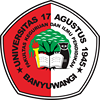PANCASILA SOCIALISM AND CHINESE SOCIALISM: A COMPARATIVE ANALYSIS BETWEEN RELIGIOUS AND MATERIALIST APPROACHES IN THE FORMATION OF STATE IDEOLOGY
DOI:
https://doi.org/10.62734/js.v4i2.598Keywords:
Pancasila Socialism, Chinese Socialism, State Ideology, Religious, Materialist, ComparativeAbstract
This article aims to comparatively analyze the characteristics of the state ideologies of Indonesia and China, especially between Pancasila Socialism and Chinese Socialism, based on religious and materialist approaches. The main focus of the research is to identify the historical foundations, philosophical values, and practical implications of both ideologies in shaping the policy direction and national identity of each country. This research uses a qualitative approach with a literature study method, through content analysis of scientific literature in the form of books, academic journals, and valid and relevant official state documents. The results of the analysis show that Pancasila Socialism is religious-humanistic, emphasizing the moral principles of divinity, humanity, and deliberation within the framework of cultural plurality. In contrast, Chinese Socialism is built on the basis of historical materialism and the centralization of the Communist Party's power, which emphasizes development efficiency and political stability. Although paradigmatically different, both ideologies have a strategic function as a social glue and a guideline for national development amidst global challenges. This finding emphasizes the importance of revitalizing state ideology contextually and participatively in order to remain relevant in the dynamics of the times
Downloads
References
Alfian . (1981). Thought and Change Indonesian Politics . Jakarta: Gramedia.
Ananta, A. (2022). Globalization and Challenges of Local Culture . Jakarta: LP3ES.
Anshari, E. (2004). Reform and Revitalization of Pancasila . Bandung: Remaja Rosdakarya .
Arifin, Z. (2018). Citizenship Education For Higher Education . Jakarta: Rajawali Press.
Boland, B. J. (1982). The Struggle of Islam in Modern Indonesia . The Hague: Springer.
Bourchier , D. (2015). Illiberal Democracy in Indonesia: The Ideology of the Family State . Routledge.
Braun, V., & Clarke, V. (2006). Using thematic analysis in psychology. Qualitative Research in Psychology , 3(2), 77–101.
Cahyono , D. (2020). Ideology Education and National Resilience . Journal National Resilience , 26(1), 33–47.
Creswell, J. W. (2014). Research Design: Qualitative, Quantitative, and Mixed Methods Approaches (4th ed.). Thousand Oaks, CA: SAGE Publications.
de Bary , W.T. (1999). Sources of Chinese Tradition: From Earliest Times to 1600 . Columbia University Press.
Dikötter , F. (2010). Mao's Great Famine: The History of China's Most Devastating Catastrophe, 1958–1962 . Walker & Company.
Dirlik , A. (1991). Marxism in the Chinese Revolution . Rowman & Littlefield.
Fairclough, N. (2003). Analyzing Discourse: Textual Analysis for Social Research . London: Routledge.
Feith , H. (1962). The Decline of Constitutional Democracy in Indonesia . Ithaca: Cornell University Press.
Fewsmith , J. (2001). China Since Tiananmen: The Politics of Transition . Cambridge University Press.
Fukuyama, F. (2002). Our Posthuman Future: Consequences of the Biotechnology Revolution . New York: Farrar, Straus and Giroux.
Fukuyama, F. (2006). Identity: The Demand for Dignity and the Politics of Resentment . New York: Farrar, Straus and Giroux.
Fung, Y. L. (1983). A Short History of Chinese Philosophy . Free Press.
Guba, E.G., & Lincoln, Y.S. (1994). Competing paradigms in qualitative research. In NK Denzin & YS Lincoln (Eds.), Handbook of Qualitative Research (pp. 105–117). Thousand Oaks, CA: Sage.
Guo, S. (2018). Marxism in China: Continuity and Change. Journal of Chinese Political Science , 23(2), 181–198.
Haryatmoko . (2016). Political Ethics and Power . Yogyakarta: Kanisius .
Hidayat , R. (2019). Ideology and Culture Politics in Indonesia . Yogyakarta: Pustaka Pelajar .
Kaelan. (2013). Pancasila Education . Yogyakarta: Paradigma.
Latif, Y. (2011). The Perfect State: Historicity, Rationality, and Actuality of Pancasila . Jakarta: Gramedia.
Leese, D. (2011). Mao Cult: Rhetoric and Ritual in China's Cultural Revolution . Cambridge University Press.
Liu, J. (2019). Political Order in Contemporary China . Beijing: Renmin University Press.
Liu, J., & Zhao, L. (2023). Comparative Political Ideologies in East Asia. Asian Studies Review , 47(1), 55–74.
MacFarquhar , R., & Schoenhals , M. (2006). Mao's Last Revolution . Harvard University Press.
Magnis-Suseno, F. (1997). Political Ethics: Basic Moral Principles of Modern State . Jakarta: Gramedia.
Marx, K. (1978). Contribution to the Critique of Hegel's Philosophy of Right: Introduction. In R. C. Tucker (Ed.), The Marx-Engels Reader (2nd ed., pp. 53–65). New York: W.W. Norton. (Original work published 1844)
Meisner, M. (1999). Mao's China and After: A History of the People's Republic . Free Press.
Nasrullah, M. (2020). Dimensions Deity in Pancasila Socialism . Journal Philosophy , 30(1), 15–32.
Naughton, B. (2007). The Chinese Economy: Transitions and Growth . MIT Press.
Neuman, W. L. (2014). Social Research Methods: Qualitative and Quantitative Approaches (7th ed.). Boston: Pearson.
Notonagoro. (1984). Pancasila in a Popular Scientific Way . Jakarta: Pancur Shiva .
Pei, M. (2006). China's Trapped Transition: The Limits of Developmental Autocracy . Harvard University Press.
Ricklefs , M. C. (2008). A History of Modern Indonesia since c. 1200 . Stanford: Stanford University Press.
Riyadi, S. (2022). Implementation of Pancasila Education as an Effort to Strengthen National Character. Journal Educational Sciences , 8(1), 33–45.
Schram, S. R. (1984). The Political Thought of Mao Tse -tung . New York: Praeger.
Soekarno. (1964). Under the Flag Revolution . Jakarta: Bung Karno Foundation .
Spence, J.D. (1990). The Search for Modern China . WW Norton & Company.
Sunoto. (2020). Actualization of Pancasila Values in the Digital Era. Journal of Pancasila Ideology , 5(2), 121–134.
Tu, W. (1998). Confucian Traditions in East Asian Modernity: Moral Education and Economic Culture in Japan and the Four Mini-Dragons . Harvard University Press.
Vogel, E.F. (2011). Deng Xiaoping and the Transformation of China . Harvard University Press.
Wahyudi, J. (2021). Pancasila and Global Ideological Challenges. Journal Indonesian Philosophy , 28(1), 45–60.
Wibowo, A. (2019). Thoughts Philosophy Karl Marx's Politics . Journal Thinking Social Politics , 5(1), 77–89.
Wiryono , R. (2021). Map of Ideological Studies in Indonesia: A Review Historical and Theoretical . Journal Knowledge Social and Science Politics , 25(2), 123–140.
Yamin , M. (2017). Pancasila Ideology and the Future of the Nation . Jakarta: Balai Pustaka.
Zhang, Q., & Wang, Y. (2021). Ideological Education and Political Socialization in China. China Review , 21(3), 89–107.
Zhao, S. (2015). The Ideology of the Chinese Communist Party. Journal of Contemporary China , 24(96), 746–763.
Downloads
-
PDF
 Abstract
View: 327,
Abstract
View: 327,
 PDF
Download: 178
PDF
Download: 178
Published
How to Cite
Issue
Section
License
Copyright (c) 2025 Adita Taufik Widianto, Riztika Widyasari

This work is licensed under a Creative Commons Attribution-ShareAlike 4.0 International License.






 View My Stats Jurnal Sangkala
View My Stats Jurnal Sangkala

